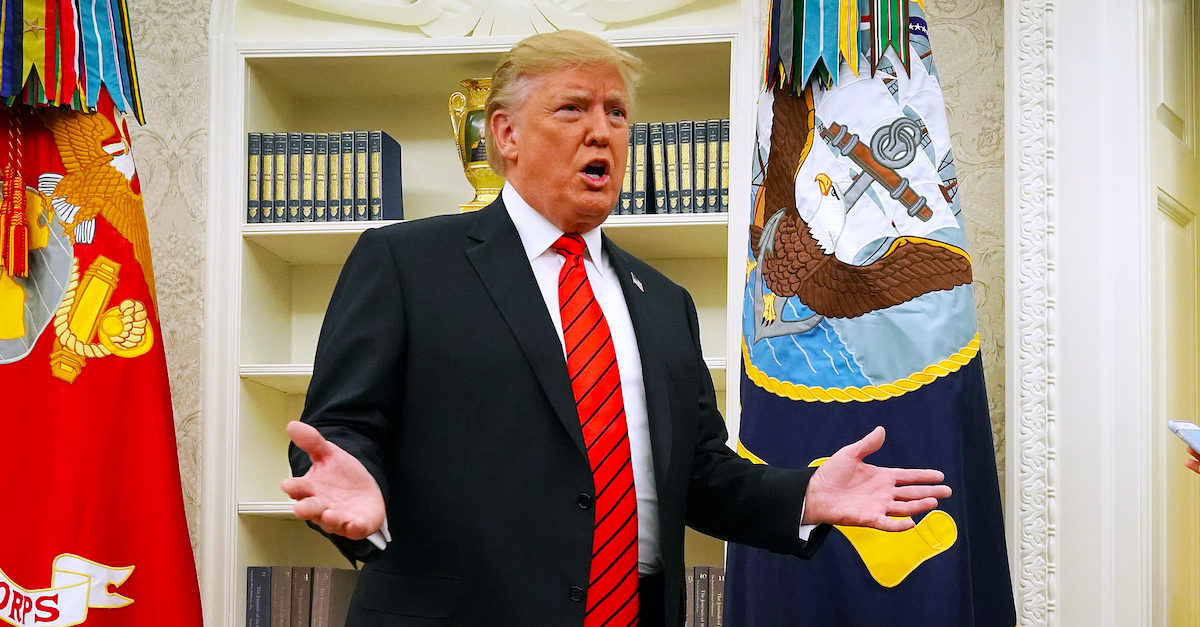
President Donald Trump on Monday tweeted apparent regret that he was responsible for signing the Whistleblower Protection Act into law. Although Trump retweeted a Veterans Day statement from the White House’s official Twitter account that correctly credited his administration with signing the VA Accountability and Whistleblower Protection Act into law, that Act is unrelated to the Intelligence Community Whistleblower Protection Act of 1998.
“To think I signed the Whistleblower Protection Act!” Trump lamented.
To be clear: the whistleblower protection bill Trump signed into law has absolutely nothing to do with the government official who first reported the phone call with Ukrainian president Volodymyr Zelensky; it has nothing to do with the law that under which that whistleblower is protected.
The individual who filed the initial complaint about Trump’s communications with Zelensky is protected by the Intelligence Community Whistleblower Protection Act of 1998. That law, which was signed by then-President Bill Clinton, prohibits the government from retaliating against an employee of the intelligence community for reporting perceived wrongdoing uncovered in the course of their work.
In 2017, President Trump signed a bill establishing the Veterans Affairs Office of Accountability and Whistleblower Protection, which aimed to make it easier and safer for employees of the Department of Veterans Affairs to report wrongdoing. Again, that law only applies to employees of the Department of Veterans Affairs.
A blistering Inspector General report issued last month highlighted the many failures of the Trump administration in achieving the mission of protecting VA whistleblowers.
“The very office established to protect whistleblowers and enhance accountability lacked the basic structures needed to achieve its core mission,” the report stated.
The IG also reiterated the importance of protecting the identities of those who report wrongdoing.
“This is particularly important given that individuals’ reputations are at stake, whistleblowers’ identities must be protected, and the issues on which the OAWP is reporting affect veterans’ lives in tremendously significant ways,” report said.
VA IG Report by Law&Crime on Scribd
[image via Chip Somodevilla/Getty Images]